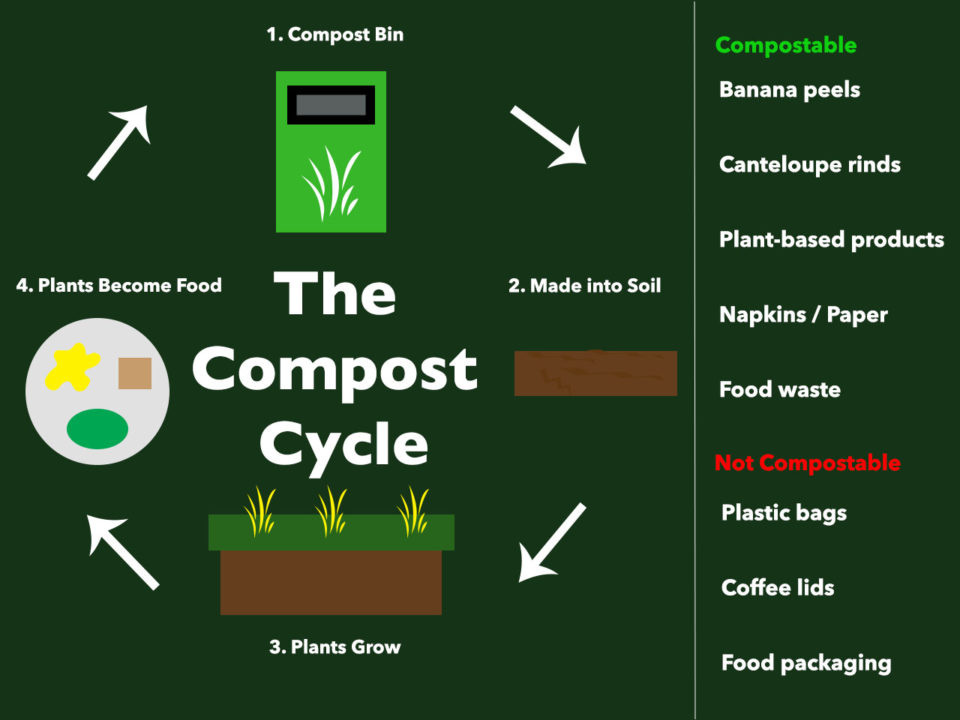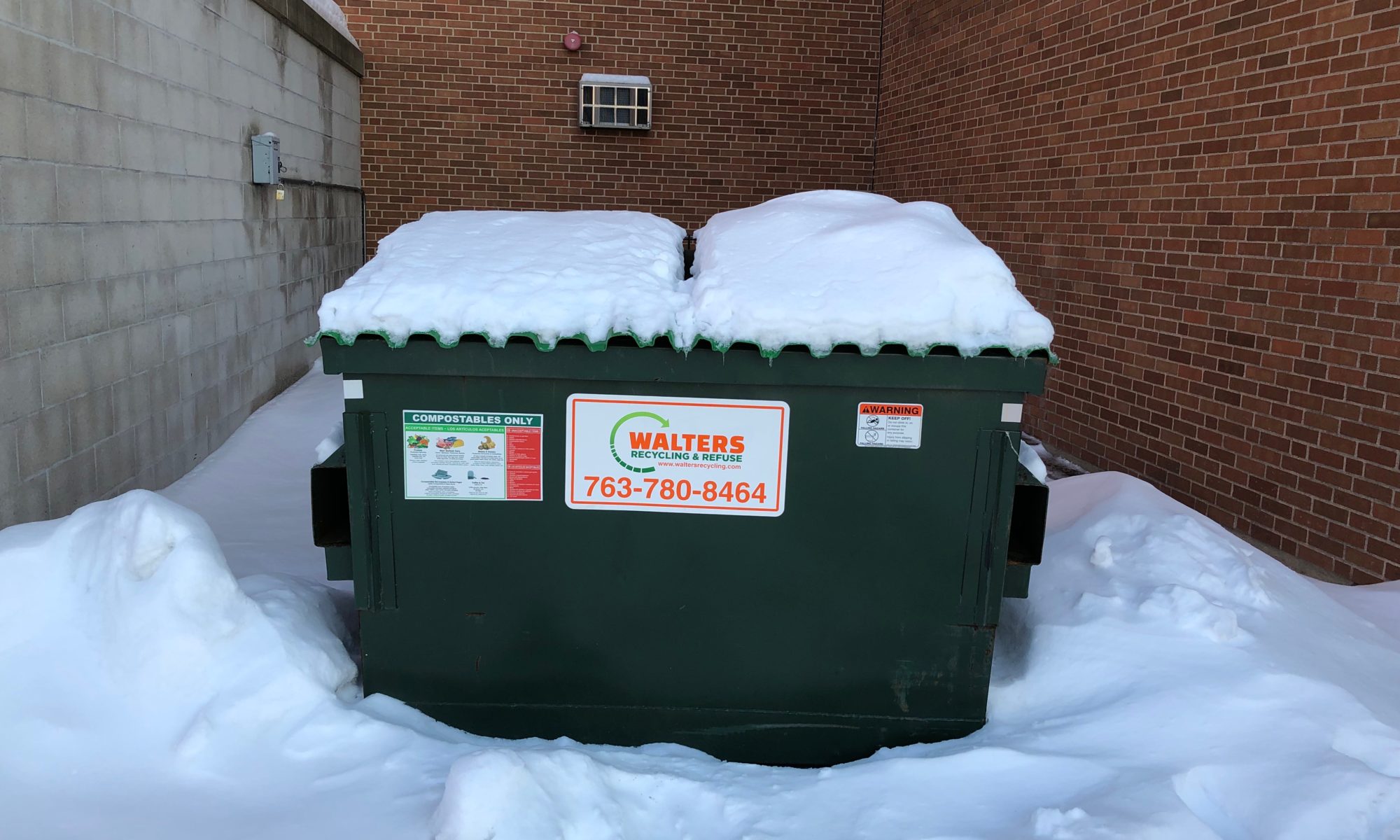
The compost bin is located on the west side of Dowling Hall. The bin was placed in hopes to increase student composting. (Justin Amaker/TommieMedia)
St. Thomas students living on north campus can now compost with ease due to a new collection bin outside of Dowling Hall. This is the second green, three-yard compost collection bin on campus; the other has been in place behind Binz Refectory on South Campus for more than a year.
The purpose of the new bin is to launch a pilot composting program on the north side of campus and to try to get more students to compost out of their on-campus dorms and apartments, according to Director of Facilities Services Nichole Boehmke.
“Students who want to compost out of their dorm rooms can come (to Physical Plant) during normal business hours and pick up small, green compostable liners,” Boehmke said.
A trash study was conducted where gray 96-gallon trash bins were placed around campus to see what was thrown away that could have been recycled or composted. It was reported that 23% of materials thrown away in those bins were compostable and 33% of it was recyclable. Also, the Physical Plant reported that 56% of its 1,123 tons of material collected was composted, recycled or reused in some way.

Students are now able to throw away compostable items into a bin outside Dowling Hall. (Mae MacFarlane/TommieMedia)
Compostable items include anything that is consumable or came off of a consumable product, any aspect of a house plant, along with anything noted as “BPI Certified Compostable.”
Some cardboard can be composted as well if it touched any food, such as the bottom of a pizza box.
Once the bin is full, it is picked up by Walters Recycling and Refuse, a refuse disposal company that St. Thomas contracts with for trash, recycling and compost pick up campus-wide. The new bin next to Dowling Hall is picked up on a “will-call” schedule, meaning that the Physical Plant will contact Walters to pick up the bin when it is full. The bin that is behind Binz Refectory is on a regular pickup schedule during the school year.
Senior Hannah Wallace is an environmental science major, the president of the Sustainability Club and a member of the university’s Sustainability Council. She recently received a monetary grant to help build a modified bicycle with a trailer attached to it, which will allow compost to be picked up throughout campus by way of bike.
“(The Sustainability Council) held a meeting last semester to kinda see what students want to see,” Wallace said, “and composting was a big thing.”
Wallace, and the rest of the Sustainability Club, is hoping to launch a website soon where students are able to request compost to be picked up from their dorm rooms, apartments or homes around campus.
Justin Amaker can be reached at justin.amaker@stthomas.edu.

